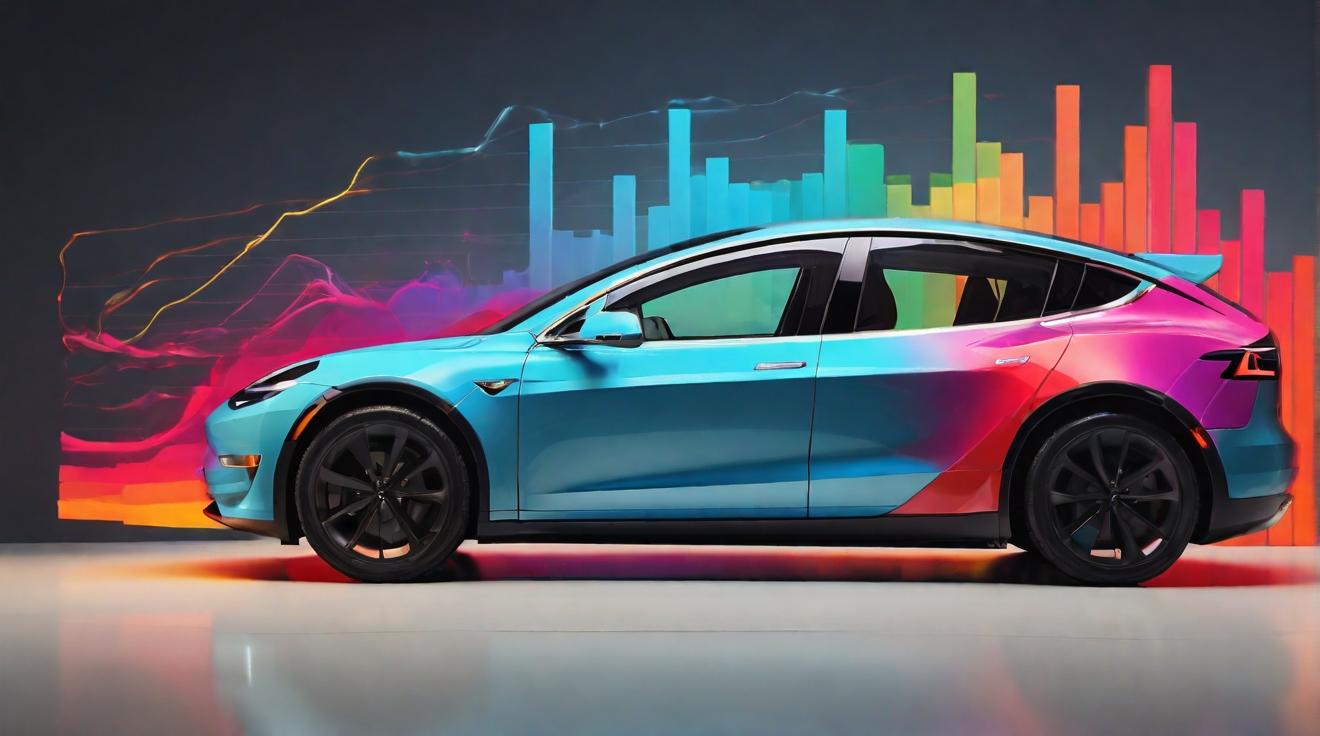The Confusing Car Market: Sales of EVs and Hybrids on the Rise, But Challenges Remain
The car market has experienced a flurry of trends recently, making it difficult to grasp the big picture. While sales of battery-electric vehicles (BEVs) have reached record levels, the market is flooded with options, and cheaper models are in short supply. Meanwhile, Toyota Motor, a leader in hybrid vehicles, has seen its stock soar while Tesla struggles. Nevertheless, all efficient automotive technologies are thriving, with projections indicating that more BEVs, plug-in hybrid cars, and mild hybrid vehicles will be sold in 2024 compared to the previous year. This positive outlook sets the stage for growth in the car industry.
Strong Global Demand for Electric Vehicles
In 2023, the combined sales of plug-in vehicles in the United States, Europe, and China amounted to roughly 13.3 million units, accounting for over 60% of global light vehicle sales. This represented a 34% increase compared to the previous year. Of these sales, 9.3 million were BEVs, showing a 30% growth, while plug-in hybrid electric vehicles (PHEVs) recorded an impressive 46% increase with four million units sold.
The Hybrid Horse Race: Distinguishing Between Different Types of Hybrids
Not all hybrid vehicles are created equal. Mild hybrids, which do not require charging, cannot operate solely on electric power and still rely on gasoline. On the other hand, PHEVs allow drivers to switch to all-electric mode for a limited distance, while BEVs are fully electric and do not require traditional fuel. In 2023, the total sales of hybrid vehicles in the U.S. and Europe reached nearly six million units, marking a 26% year-over-year growth. However, data from the China Passenger Car Association did not include figures for mild hybrids. This discrepancy reflects Chinese analysts’ greater focus on BEVs and PHEVs, which accounted for over one-third of the overall market share in China, compared to 23% in Europe and 10% in the U.S.
Growth Prospects: Electric Vehicles Are Set to Dominate
The U.S. witnessed an approximate 46% growth in BEV sales, slightly outpacing mild hybrid sales that experienced a 31% increase. Projections from Cox Automotive indicate that EVs will represent around 24% of total light vehicle sales in 2024, up from 17% in 2023, implying a 40% growth for both BEVs and all hybrids.
The Importance of Supply and Demand Dynamics
While the growth prospects for EVs seem promising, the stock market performance of EV-related companies like Tesla has been lackluster due to concerns over market saturation and overproduction. To incentivize EV adoption, government subsidies have made it challenging for automakers to accurately gauge consumer demand. In the U.S., auto market forecasts anticipate modest gains in overall car sales, aligning with global industry trends.
Stock Market Implications: Analyzing Tesla, Ford, General Motors, and Toyota
Tesla, the leading EV manufacturer in the U.S., faces challenges as it transitions from its previous high-growth phases. Slower growth and the absence of a new lower-priced model have contributed to a 23% decline in Tesla’s shares this year. Traditional automakers like Ford and General Motors, however, are focusing on a different metric — the anticipated sale of approximately 16 million cars in the U.S. in 2024. This modest gain in sales signals positive growth for these companies. Investors should carefully evaluate Toyota’s shares, which have increased by over 50% in the past year, considering whether the current valuation of over 10 times earnings is justified compared to other automakers like Ford and GM, which trade at lower multiples.
In conclusion, while the car market may appear bewildering, burgeoning sales of EVs and hybrids, augmented by growth projections, provide a solid foundation for the industry. However, challenges related to production and market saturation need to be addressed to ensure sustainable growth. Investors should analyze the unique circumstances surrounding key players like Tesla, Ford, General Motors, and Toyota to make informed decisions.
Analyst comment
Positive news: The sales of electric vehicles (EVs) and hybrids are on the rise, with record levels of EV sales and strong growth in plug-in hybrid vehicles. Projections indicate that more EVs and hybrids will be sold in 2024 compared to the previous year.
As an analyst, I predict that the market for EVs and hybrids will continue to grow, driven by strong global demand and increasing consumer interest in efficient automotive technologies. However, challenges related to production and market saturation need to be addressed for sustainable growth. Investors should carefully evaluate key players like Tesla, Ford, General Motors, and Toyota to make informed investment decisions.













